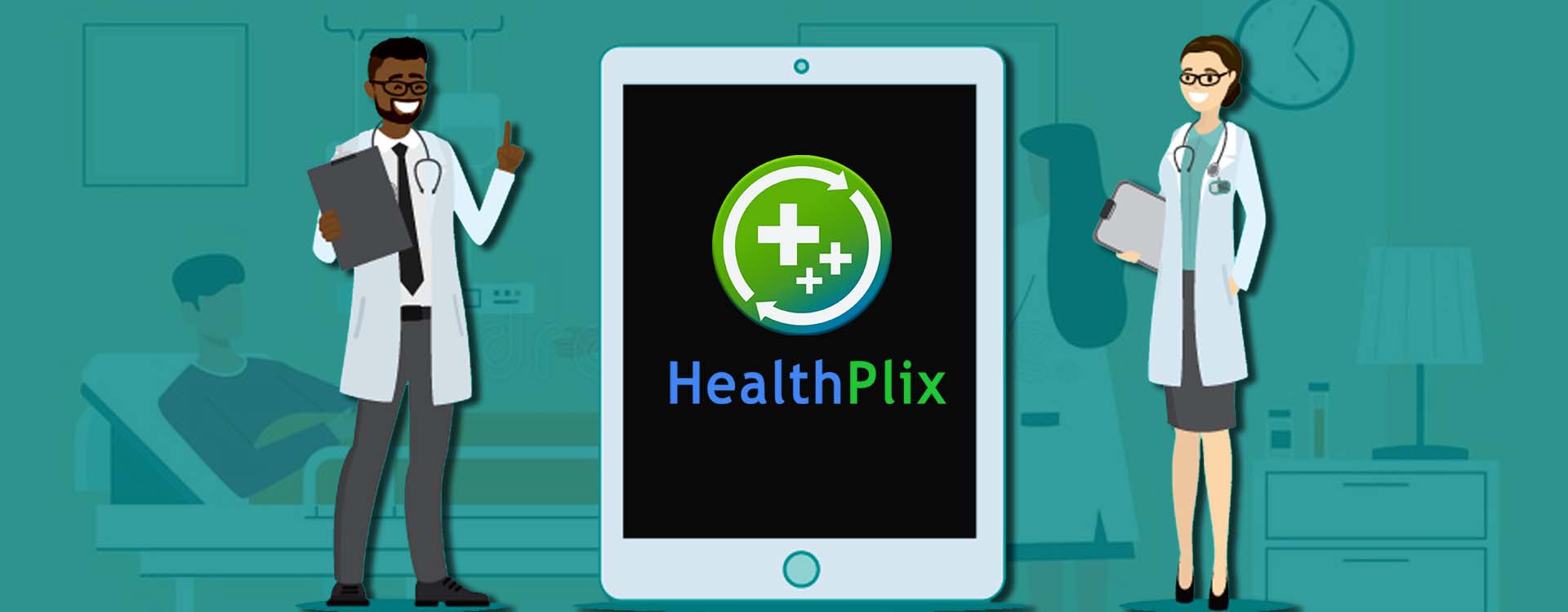HealthPlix Technologies is a Bengaluru-based health-tech start-up whose software is digitally transforming clinics and treatments. Its helping Doctors provide remote consultations to patients and is also saving their time. The technology offers an omnichannel view of disease progress for each patient. These are the features which have raised the trust quotient of this start-up and its product among Doctors.
By directly addressing the needs of Doctors, HealthPlix has proven that Doctors are indeed the crux of healthcare delivery. HealthPlix is speeding up their practises and in turn, helping improve outcomes for patients.
A Doctor’s main responsibility is to engage with patients. These interactions are pivotal because it’s the time when healthcare expenditure is decided. At this crucial juncture, HealthPlix’s intervention acts as a solution, providing assistance to Doctors.
‘‘
What made HealthPlix stand out is definitely its approach. The health-tech sector has so far been focused on the patient base. But HealthPlix is the first start-up of its kind to serve Doctors who are the most important people in healthcare.
What sets HealthPlix apart
What has set HealthPlix apart is its ‘Doctor-first B2B approach’. Due to its offerings, patient health outcomes, Doctor practises, and pharmaceutical insights have reached a new high. The company just raised $14.5M in a Series B funding round backed by Lightspeed Venture Partners, JSW Ventures, Kalaari Capital, and Chiratae. They received investment for the sole reason that they are a big help to the Doctors of India and are actually working to improve the efficiency of treatments.
There is huge gap between the number of practising Doctors which is just under 300,000 in India and patients suffering from chronic illnesses who are in the hundreds of millions.
As a result, an Indian Doctor’s schedule is very tight. To compensate for the lack of time, their entire decision making, and diagnosis process relies on the interactions with patients which cannot exceed beyond just a few minutes time. During these few minutes, they have to remember the past diagnosis with a quick run through of the records, and they also need to instantly come up with a plan of action.
Doctors are thus under immense pressure and HealthPlix is helping them to utilise their limited time more efficiently. HealthPlix’s software fills the knowledge gap between the Doctor, the diagnosis, and the patient by keeping tabs on the patient, the medicine information, and past diagnosis. It has a knowledge base which when combined with the vast knowledge that the Doctor possesses, will improve the decision-making process.
What made HealthPlix stand out is definitely its approach. The health-tech sector has so far been focused on the patient base. But HealthPlix is the first start-up of its kind to serve Doctors who are the most important people in healthcare. It has stood out due to the impact it is having by working directly with the Doctor who is in contact with scores of patients.
What’s in it for me?
Health-tech start-ups who aspire to emulate HealthPlix’s success need to come up a problem-solving solution. Instant information access is an ongoing challenge among healthcare workers, especially Doctors. If your products and services can ease or resolve this challenge, your start-up is rightly approaching the heath-tech sector.
Due to Covid-19, patients are seeking teleconsultations which is exactly what HeathPlix is enabling. The National Stack Exchange and Ayushman Bharath have built a UPI infrastructure for hospitals to take consultations to the digital space. As a healthcare start-up, you can innovate around these opportunities and challenges. Most health-tech start-ups are already innovating but not on as big a scale as HealthPlix.
You can innovate to empower Doctors since Doctors and the Healthcare Industry are struggling due to Covid. There is immense unpreparedness and shortage of healthcare workers. The system is very shaky and is struggling and technology is definitely a big help at this time.
Remote diagnosis is critical and there is accelerated adoption for health-tech. Where the acceptance for teleconsultations was very low among patients before, they are now ready to accept it unquestioningly.
You can think about voice-based solutions for doctors, telemedicine products, or products around chat/audio/video calls. You could also come up with deep learning solutions to help physicians. The main problem to be solved is to help doctors spend more time with patients and if your start-up can resolve this, you can expect success in health-tech.




